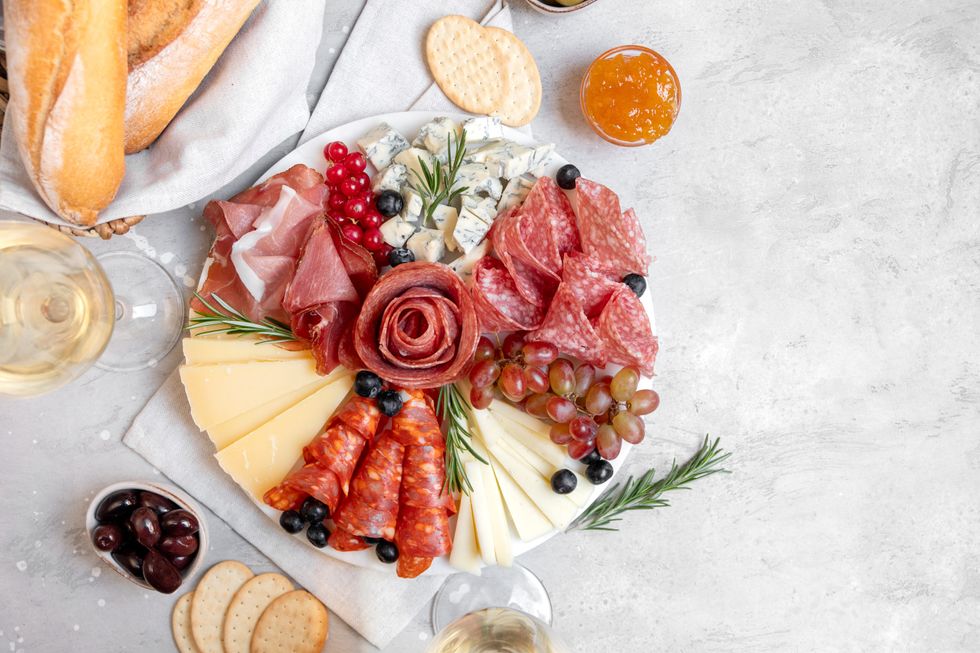Britons banned from bringing EU cheese and meat into UK as fears of disease outbreak grow
Food hygiene ratings. What's behind numbers
Foot-and-mouth disease has spread in parts of Europe
Don't Miss
Most Read
Trending on GB News
British holidaymakers are being warned not to bring cheese and meat products back from EU countries under a temporary ban introduced by the UK government.
The restrictions, which came into effect on Saturday, aim to prevent the spread of foot-and-mouth disease amid a growing outbreak on the continent.
The ban extends earlier restrictions that only applied to Germany, Hungary, Slovakia and Austria.
Travellers cannot bring back items such as cured meat and cheese, even in sandwiches, regardless of whether they are packaged or purchased from duty-free.

Cured meat and cheese are among the banned items
GETTY
The list of restricted products includes pork, beef, lamb, mutton, goat and venison. Other products made from these meats, such as sausages, are also banned.
Milk and dairy products including butter, cheese and yoghurt cannot be brought in. There are limited exceptions for travellers, who can bring up to 2kg per person of powdered infant milk, infant food, or special food required for medical reasons.
The restrictions are part of efforts to maintain the UK's current foot-and-mouth disease-free status.
Travellers who attempt to bring in restricted products will have them seized and destroyed by border officials.
In "serious cases", violators could face fines of up to £5,000. The restrictions apply only to people arriving in Great Britain.
Northern Ireland, Jersey, Guernsey, and the Isle of Man are exempt from the current ban.
Officials are urging holidaymakers to check the rules before returning from EU trips to avoid having their holiday souvenirs confiscated at the border.
Foot-and-mouth disease is a highly infectious virus that causes blisters in animals' mouths and under their hooves.
It leads to lameness and feeding difficulties in affected livestock. There are currently no cases in the UK, with the last outbreak occurring in 2001.
LATEST DEVELOPMENTS

These products will be destroyed if anyone attempts to bring them in
GETTYThe National Farmers Union president Tom Bradshaw said the government had been "quick" to bring in the initial ban. He added that "stricter border controls are essential" to contain the disease.
The Guild of Fine Food, representing independent food and drink retailers, added the ban on "holiday treats" had been "hurried". However, the organisation said it brought UK government policy for holidaymakers more in line with restrictions already placed on small businesses.
Managing director of the Guild John Farrand said: "The food and drink industry absolutely supports the fact that we must protect our farmers and that biosecurity is paramount."
He noted that "bureaucracy" introduced after Brexit had already added "significant constraints" for small food and drink importers and exporters.








